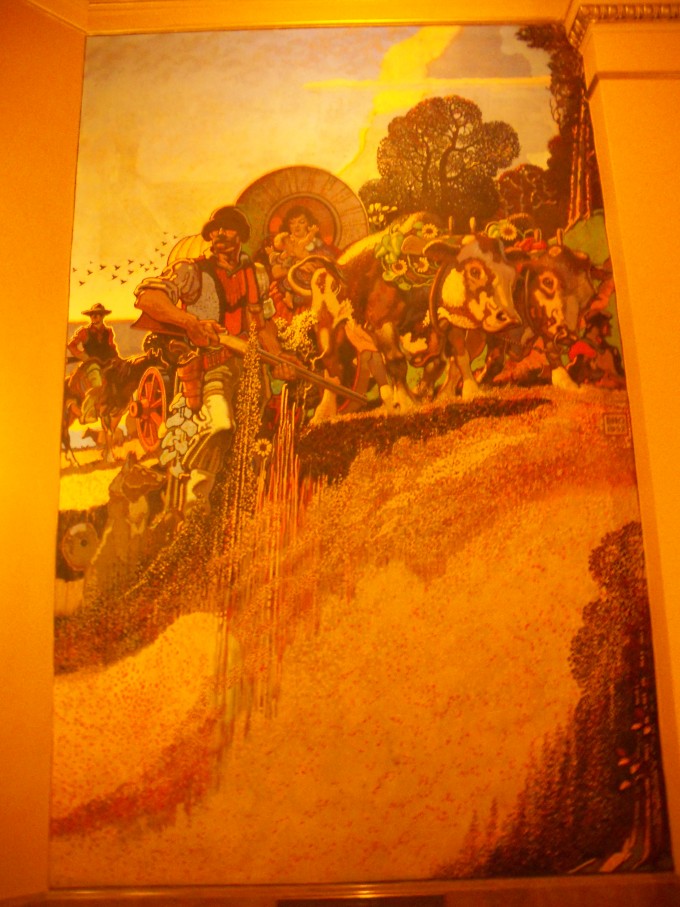
Tuesday, 12 January 2016
For I fear lest, when I come, I shall not find you such as I wish, and that I shall be found by you such as you do not wish; lest there be contentions, jealousies, outbursts of wrath, selfish ambitions, backbitings, whisperings, conceits, tumults; 2 Corinthians 12:20
Paul has already alluded to a visit with the Corinthians in several ways. In 2 Corinthians 1:23, he said that he specifically refrained from visiting in order to spare them. His words now bring in that same thought. If he comes, things might be in chaos and he would have to take apostolic action.
In 1 Corinthians 4:21, he asked if he should come to them “with a rod, or in love and a spirit of gentleness?” It seems that any coming visit would be one of anxiety for him, not really knowing what he was to expect. And once he got there, he was anticipating the worst. He says, “I shall not find you such as I wish.” He would hope for a pleasant visit with a group of people dedicated to Christ and hungry for sound doctrine.
And in like manner, he was afraid that the Corinthians would find Paul in a manner that they wouldn’t wish for as well. He would come with a rod of correction as necessary, and he would come to redirect them from their many failings too. If this is what he found, then this is what he would come to do.
From there, he mentions the failings that he was fearful he would find, beginning with “contentions.” This word gives the sense of quarreling or strife. It is those who are looking for a fight simply because it is their nature to engage in such a thing. They are the type to divide people into factions for the sake of disharmony rather than harmony.
Next he notes “jealousies.” The Greek is zḗlos and the root it comes from means “hot enough to boil over.” Thus zḗlos is an onomatopoeia “that mimics the sound of water bubbling over from heat.” It would indicate those who were disposed towards defending their own views regardless of the cost.
Next he mentions “outbursts of wrath.” Literally, it says “wraths.” Paul was expecting people to be lashing out at one another as they defended their position. Instead of harmony, there would be chaos because of this negative attitude which would spill over into much anger.
He also notes “selfish ambitions.” According to Helps Word Studies, this word properly means, “work done merely for hire (as a mercenary).” It would thus be “referring therefore to carnal ambition (selfish rivalry).” People would be willing to defend another side simply because of whatever gain they thought they could get out of it.
After this, “backbitings” are noted. The word is katalalia and one can almost hear the intent in the word. It is only used here and in 1 Peter 2:1. It gives the idea of “evil-speaking, backbiting, detraction, slander.”
“Whisperings” are Paul’s next area of concern. The word is psithurismos and this is its only use in the New Testament. The sound is adapted to the sense. It indicates secret slanders. It speaks “of the murmuring of a snake-charmer.” These come from people with the devil’s forked tongue.
Next “conceits” are named. Again, a word unique to the New Testament is give here. It is phusiósis, and it means “inflated, like an air-bellow.” It thus gives the idea of being puffed up and it conveys the sense of arrogance and negative pride which then fosters an inflated ego.
Finally, Paul finishes with “tumults.” This is the type of thing one would expect in a riot. It gives the idea of generating confusion, being out of control, and having everything up for grabs. In this, “uncertainty and tumult inevitably generates more instability.”
Paul certainly had a lot of worries concerning his visit as he pondered what he might find there at the dysfunctional church at Corinth. Charles Ellicott notes that the list “…forms a suggestive parallelism of contrast to that in 2 Corinthians 7:11.” He also says that, “[T]he ethical imagination of the Apostle, with its keen perception of the shades of human character, dwelling now on the manifold forms of opposition, as before it had dwelt on the manifold fruits of repentance.”
Life application: How alike the church at Corinth are many churches today. People seem to revel in one sort of perverse conduct or another. Let us keep ourselves in check and not add to the grief that pastors already face as they are pulled in a thousand directions at once. Instead, let us listen to the words of Paul and take them to heart. Instead of strife, let us purpose to be filled with peace.
Lord God, help us to be the type of faithful believers who look for peace and contentment in our church. Too often someone comes in who wants to cause division and strife. Help us to never be a part of that, but instead give us wisdom to be peacemakers. It is certain that You would want us to be faithful congregants who look for proper doctrine and harmonious interaction. So Lord, please help us in this. Amen.
